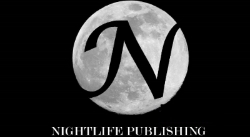When I decided to become an independent publisher, Barry Eisler
was the one of the modern writers who inspired me most. I wanted to capture the lethal complexity
of his characters and the world they live in. I strive to emulate the visceral depth
that he brings to both his tactical descriptions and his combat scenes without parroting
his style. London Twist marks both a slight departure from his established conventions
and an expansion of his creativity that achieves very pleasant results.
Readers familiar with the John Rain series will recognize Rain's
former lover and honey trap Delilah. It is her first solo operation that provides
the catalyst for the new direction. But Mr. Eisler doesn't simply change the gender
of his protagonist and continue on his merry way. In Twist, seduction replaces murder
as the method of choice without sacrificing the tactical element that makes Mr.
Eisler's writing so enjoyable. The seductive and erotic scenes are handled with
just as much meticulous rigor as his previous combat descriptions and this time
they come off as much less desperate and violent as his earlier sex scenes. Of course,
the deception, paranoia and double crosses that consume the Rain series are on every
page of this novella, but with London Twist, Mr. Eisler proves he can write
about both sex and violence skillfully.
My upcoming spy novel also focuses on the consequences of combining
intimacy and deception and once again, Barry Eisler has inspired me with his latest
work. It is a short and sweet alternative to John Rain that you will enjoy if you
appreciate the intelligent thriller.
Have fun.
Gamal




















